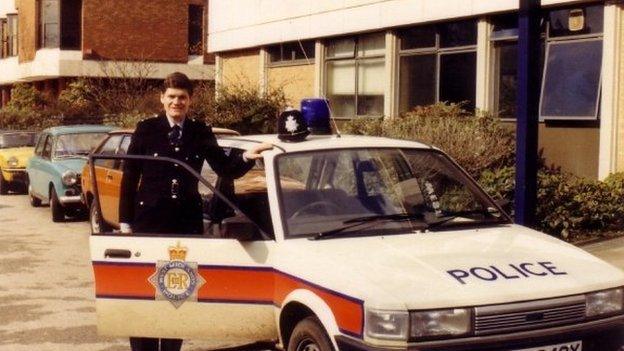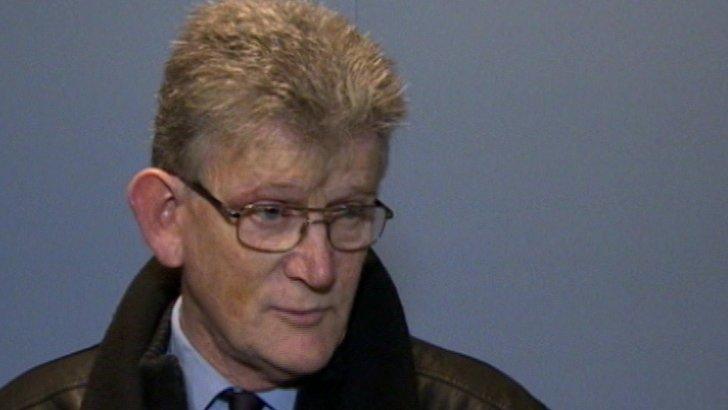HIA inquiry: Man says HIA should not pay out compensation
- Published
Mr McEldowney said false allegations could damage the legitimate claims of people who were abused in care
A former resident of a boys' home has said there should be no compensation arising from the findings of the Historical Institutional Abuse Inquiry.
The retired policeman was cared for by Sister of Nazareth nuns in Termonbacca, Londonderry.
It is one of 13 institutions being investigated by the Historical Institutional Abuse Inquiry (HIA).
Some victims groups want compensation payments before the inquiry completes it work in two years' time.
Bernard McEldowney spent 16 years at Termonbacca.
He left in 1976, aged 18, and eventually joined the police in England where he rose to the rank of inspector.
A year ago, he gave evidence to the HIA anonymously and told the inquiry that he believed the prospect of compensation from either the Sisters of Nazareth or the HIA had prompted some false allegations of abuse.
'Marginalised'
He has now decided to waive the right to anonymity and speak publicly for the first time to raise his concerns.
"The problem I have is that the real victims will be marginalised by these people who have hijacked the inquiry," he said.
But other campaigners have rejected the charge, saying people giving evidence at the inquiry have been telling the truth.

After leaving Termonbacca, Bernard joined the police in England
Mr McEldowney said it was time someone spoke up for the many nuns who looked after countless orphans like him.
When he gave his evidence to the Inquiry last year, Bernard McEldowney said: " I do hope that the HIA inquiry team... are keeping open the possibility of involving the police to see if they can secure and preserve evidence of a possible conspiracy to pervert the course of justice and related offences."
'Motives'
When he spoke to me in England, almost a year later, the former police officer said he regarded any prospect of compensation as a problem.
"It shouldn't be about money, it should be about justice. and if people are obsessed with getting money, rather than justice, then I question their motives for making the allegations in the first place," he said.
But Jon McCourt from the Northwest Survivors group in Londonderry said people had gone through trauma to give evidence to the inquiry:

Jon McCourt from the Northwest Survivors group in Londonderry said people had gone through trauma to give evidence
"I know the experience I had, of sitting in Banbridge, and listening to people from this city give evidence to the Historical Institutional Abuse Inquiry.
"The toll that that was physically taking on people, emotionally taking on people, there's no way anyone was lying there."
Mr McEldowney said he was one of many children who were given the best of care by nuns at Termonbacca.
He still regards those nuns as the family he never had, then and now.
"The problem with making these allegations is that they have created new victims," he said.
"I mean there are people I know, nuns who are dead, some who are still alive.
"They were working 24/7 looking after the children, they had other responsibilities as well and yet, despite all the effort they've made .... they're now being accused of all these allegations.
"When in many cases they're dead or should be enjoying their retirement, they're having to be spoken to by the police, giving evidence to the inquiry. so, the are victims, they're the new victims, they're another set of victims we shouldn't discount."
He also said he believed false allegations could damage the legitimate claims of people who were abused in care.
"I have never denied there are victims and I have submitted statements to the inquiry and in my statements I have stressed that I know and believe that there will be victims. but my concern is that this inquiry is being hijacked by unscrupulous people."
Mr McEldowney said his views were shared by some other people who were also cared for by nuns at Termonbacca.